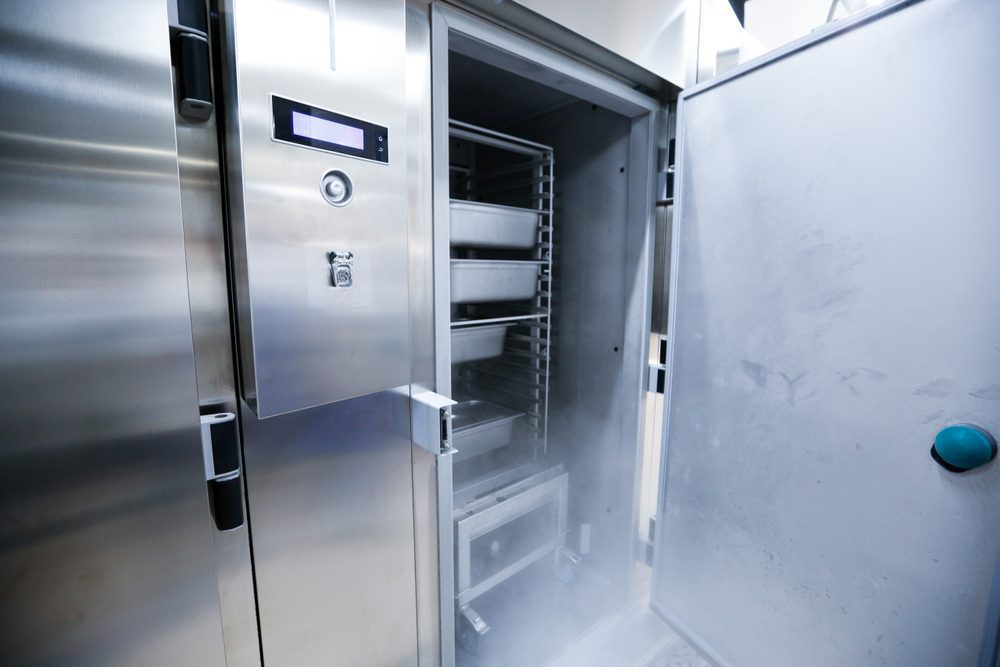Advertiser Disclosure: Many of the companies featured here provide compensation to us. This is how we maintain our free service for consumers. Compensation, along with hours of in-depth editorial research, determines where & how companies appear below.
As more and more people become victims of identity theft, it is essential to be aware of the steps you can take to protect yourself. One way to guard against scammers opening new credit accounts in your name is to freeze or lock your credit.
If you’re not careful, scammers can open loans in your name and ruin your credit score. Protect yourself by monitoring your credit reports regularly.
Identity theft is a severe problem, but there are ways to protect yourself. One way is to sign up for a credit freeze or credit lock on your credit reports. This can help prevent scammers from opening new accounts or taking out loans in your name.
If you want to protect your credit score, you might wonder whether to freeze or lock your credit. Both options have pros and cons, so it’s important to weigh each before deciding.
It’s essential to be vigilant against identity thieves, and one way to do that is by using a credit monitoring service. But what’s the best option for you?
You should be aware of some key differences between credit freezes and credit locks.
Credit Freeze

- What it costs: Free
- What it does: No one else can access your credit reports or qualify for loans or credit cards in your name, meaning that you’re the only one who can use your credit. This is important for both lender and borrower confidence.
- Ease of use: Each bureau must be contacted to freeze your reports. To unlock the reports for when credit or loans are desired, the bureau must be contacted again with a PIN.
Credit Lock

- What it costs: There are a few different ways to locate your credit. TransUnion offers Credit Lock Plus for $29.95 a month. Experian has CreditLock, free for the first 30 days and then $19.
- What it does: If you’re worried about identity theft and credit fraud, you may want to consider a credit lock. This works similarly to a credit freeze in that your credit reports will be inaccessible to lenders and other credit providers. However, with a credit lock, you can unlock your reports if you need to.
- Ease of use: To protect your credit, you must contact each bureau and request a lock. Unlocking your credit is more accessible and can be done through mobile apps that expedite the process.
Credit Freeze: What Is It?

A credit freeze is an intelligent way to protect your financial information. When you freeze your credit, lenders cannot access your credit reports unless you permit the three credit bureaus to unfreeze them. This makes sense when you’re not actively seeking new lines of credit, like when you’re not planning to apply for a mortgage, credit card, or auto loan shortly. By keeping your reports frozen, lenders won’t be able to review your history and determine whether or not to approve you for a loan.
Identity theft is a severe problem, but there are ways to protect yourself. One way is to ensure lenders can’t access your credit reports. If a scammer tries to take out a loan or open a credit card account in your name, they’ll be thwarted when they can’t get your credit information.
When You Should Freeze Your Credit
If your personal or financial information has been exposed to a data breach, it’s a good idea to freeze your credit. This can help keep predators from opening new accounts in your name.
But freezing your credit isn’t just something to do if your identity has been stolen. If you want to constantly protect yourself from identity theft, keeping your credit frozen is a good idea unless you actively apply for a new credit card or loan. That way, if any of your information is compromised, the thieves won’t be able to open any new accounts.
Of course, when you are applying for new credit or debt, you’ll need to unfreeze your credit temporarily. Make sure that once the process is over, you freeze your credit again at all three major credit bureaus: Experian, Equifax, and TransUnion.
How To Freeze Your Credit

If you decide to freeze your credit, the credit bureaus will give you a PIN for freezing and unfreezing your credit. Be sure not to lose this number, as you’ll need it if you want to unfreeze your credit in the future for things like new credit cards, car loans, or mortgages. Note that Equifax is the only one of the three major credit bureaus that do not require a PIN for freezing and unfreezing your credit.
Credit Lock: What Is It?
If you’re concerned about identity theft, you may want to consider using a credit lock. This works the same way as freezing your credit, preventing lenders from accessing your credit reports. This will protect you if someone tries to open up new lines of credit or take out loans in your name. By locking your credit, you can safeguard against fraudsters and ensure that only you have access to your financial information.
There are several key differences between a credit lock and a freeze. First, locks are offered as services by Experian, Equifax, and TransUnion, while freezes are not. You may have to pay a fee to lock your credit at all three bureaus. Locking your credit at only one or two bureaus will not provide complete protection against identity theft.
Another difference between locks and freezes is that locks are typically much easier to manage. Once you sign up with a credit bureau, you can usually access your lock through a mobile app. This allows you to quickly and easily lock or unlock your credit as needed.
When You Should Lock Your Credit

If you want to protect your credit, it’s essential to keep it locked whenever you’re not actively applying for a new loan or line of credit. A credit lock is a convenient way to do this, and the credit bureaus make it easy to lock and unlock your credit quickly.
How To Lock Your Credit
If you freeze your credit, the bureaus will give you a PIN to freeze and unfreeze your credit. Keep this number safe, as you’ll need it if you want to unfreeze your credit later on for things like a new credit card, car loan, or mortgage. However, Equifax no longer requires a PIN for freezing or unfreezing your credit.
Frequently Asked Questions (FAQs)
If your credit is locked, creditors can’t access your credit report. This can make getting approved for new loans or lines of credit challenging.
- Should you lock or freeze your credit? When you freeze or lock your credit, it becomes much more challenging for scammers to steal your identity and take out loans or credit cards in your name. Lenders and credit card providers can’t access your credit reports when your account is frozen, so they’ll reject any fraudulent applications. This is a great way to protect yourself from identity theft!
- What’s better, credit freezes or credit locks? Choosing between a credit freeze and a credit lock depends on your priorities. A credit freeze is always free, while a credit lock may come with a fee, depending on the credit bureau. However, credit locks are easier to manage than freezes, so it comes down to whether you value convenience or cost more.
- How much does a credit freeze cost? This is a free service
- How long does a credit freeze last? If you want to remove your credit freeze, you’ll need to contact the credit bureaus. The Federal Trade Commission (FTC) states that if you request an unfreeze online or by phone, the bureaus must comply within one hour. Many consumers temporarily lift their freezes when applying for new credit or loans.
- How long does it take for a freeze to go into effect? The credit bureaus in each state have varying regulations concerning security freezes. In California, for example, the credit bureaus are required to freeze an individual’s credit no later than three days after receiving the request. However, in New Hampshire, the bureaus must freeze an individual’s credit within five business days of receiving the request. And, in New Jersey, the time limit for a credit freeze is again three days.
- Will a credit freeze affect your credit score? A credit freeze is a great way to protect your credit score. It won’t affect you in any way.
- How much does a credit lock cost? Prices for a credit lock service can range anywhere from $20-$30 per month, depending on which credit bureau you use.
- How long does a credit lock last? A credit lock is like a credit freeze in that it will remain until you ask the credit bureaus to remove it. However, a credit lock is more convenient because you can manage it through apps provided by the credit bureaus. You can also lock and unlock your credit reports using identification techniques such as passwords, usernames, touch ID technology, or face ID tech.
- Will a credit lock hurt your credit score? Whether or not you lock your credit will not impact your credit score.
Final Thoughts
If you’re worried about identity theft, taking steps to freeze or lock your credit can help give you some peace of mind. Freezing or closing your credit won’t stop all cybercrime, but it can make it more difficult for thieves to access your accounts and run up charges in your name.
Don’t let your guard down just because you’ve frozen or locked your credit. You must monitor your credit card statements and bank accounts for suspicious activity.




